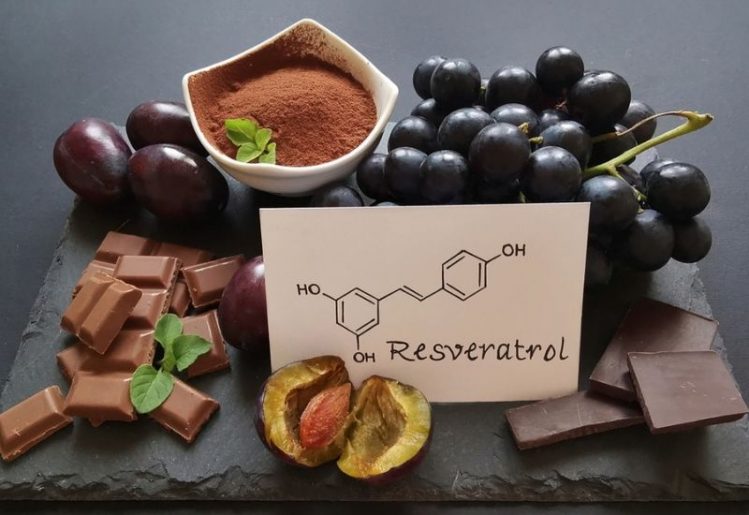For centuries, scientists have hypothesized about the connection between aging and disease. But what if we should be treating aging itself as a disease?
New research suggests that treating the aging process as a disease could deliver vast advantages to both serious health issues and the economy. The question remains: How can the medical field begin to provide solutions that combat the root causes of aging so that humans can live longer and healthier lives?
Connection Between Aging and Disease
 Aging is defined as the natural biological changes that happen over time. As the body ages, it inevitably begins to break down. With advancing age, cellular oxidation and chronic inflammatory processes begin to raise the risk of a myriad of chronic ailments. Some of the most common of these issues include cancer, heart disease, mental decline and type 2 diabetes.
Aging is defined as the natural biological changes that happen over time. As the body ages, it inevitably begins to break down. With advancing age, cellular oxidation and chronic inflammatory processes begin to raise the risk of a myriad of chronic ailments. Some of the most common of these issues include cancer, heart disease, mental decline and type 2 diabetes.
Health care professionals have traditionally treated disease and illness as it presents itself. This reactive approach has been a standard in medical care for centuries. However, new research, published in the July 5th issue of Nature Aging, demonstrates the benefits of treating aging as the disease itself.
Not only did the study look at the health benefits of a more proactive approach to combating aging, but it also examined the economic impacts of this type of ideology. The findings suggest that there are measurable benefits to moving away from a reactive approach and looking at the root of some of the most common diseases and health afflictions instead.
Specific Advantages of a More Proactive Approach
The most obvious advantage of taking a proactive approach to treating aging as a disease is that it provides immense health benefits. Specifically, health interventions with the intent of delaying the aging process can possibly increase lifespan and provide a higher quality of life in the process.
Rather than reacting to a disease that has already taken root, this approach utilizes targeted preventative measures to delay the frailty that comes with age. Attempting to prevent health issues before they start will also lead to a healthier overall life. For example, healthy individuals are far less likely to experience other medical issues and get sick less often.
The study also found that there were significant economic effects of treating aging as a disease. The data revealed that increasing the average life expectancy by 2.6 years could save $83 trillion. This is because Americans are spending approximately 17 percent of all health care expenses on the last year of life and health challenges that come with this season.
According to a recent study by the US Department of Health & Human Services (DHHS), a person who is turning 65 can now expect to need $142,000 to $176,000 for long-term health care expenses by the time they die. In addition, 15 percent of Americans over the age of 65 will be forced to deal with at least two disabilities by 2065. These disabilities raise the chance that an individual will need living assistance as they enter their golden years.
Understanding this data proves that being intentional about combatting these issues before they become a serious health concern can save a person a significant amount of money in their later years.
How to Slow Down the Aging Process
While aging is inevitable, there are steps that you can take to slow down this process and squeeze as much as possible out of your youth. There are a host of obvious steps that you can take to mitigate the effects of aging, including being committed to eating healthy, exercising regularly, staying on top of all preventative care medical appointments and testing, wearing sunscreen and avoiding unhealthy lifestyle habits such as smoking and drinking.
There is also a host of new research coming out about resveratrol, one of the most promising nutrients that has been shown to decelerate aging. This compound goes to work against both inflammation and cellular oxidation, two of the most common causes of aging. A study out of Harvard Medical School revealed how resveratrol stimulates the production of SIRT1. This enzyme accelerates the body’s natural energy centers located in the cells, mitigating the formation of disease and other illnesses.
 Foods that are rich in resveratrol include red wine, peanuts, pistachios, grapes, blueberries, cranberries, cocoa and dark chocolate. In addition to focusing your diet on foods that include this compound in abundance, you can also add an extra layer of insurance by taking a supplement such as Resverchron.
Foods that are rich in resveratrol include red wine, peanuts, pistachios, grapes, blueberries, cranberries, cocoa and dark chocolate. In addition to focusing your diet on foods that include this compound in abundance, you can also add an extra layer of insurance by taking a supplement such as Resverchron.
This targeted supplement boasts a variety of vitamins, minerals, nutrients and other all-natural substances known for their ability to support healthy cellular inflammatory processes and protect against cellular oxidation. This protects the body against oxidative stress while encouraging healthy cell growth.
While you cannot prevent aging from happening, there are things that you can do today to slow down this inevitable process. Treating this season of life as a disease and taking the proper preventative measures can go a long way in helping you to squeeze more out of life as it relates to both quantity and quality.


